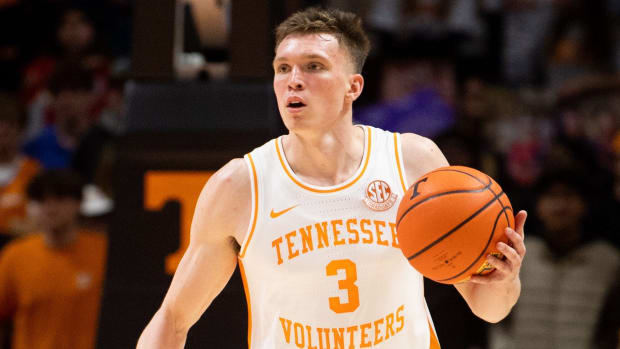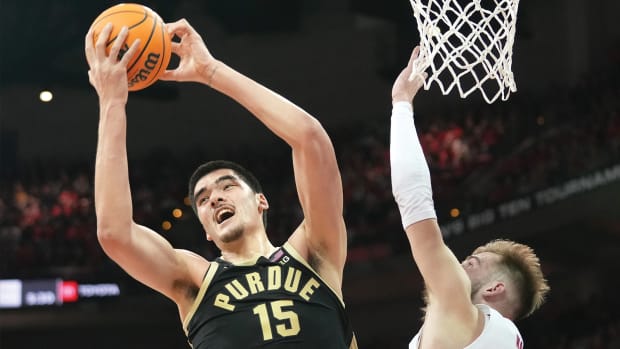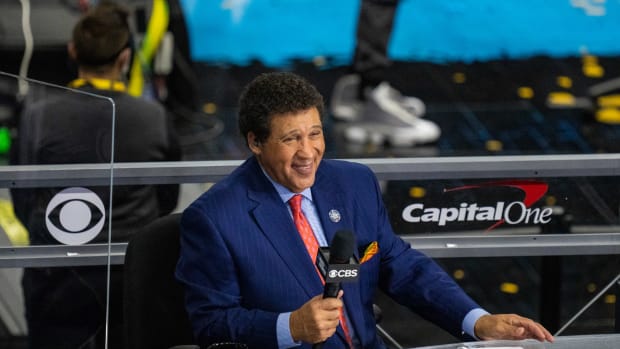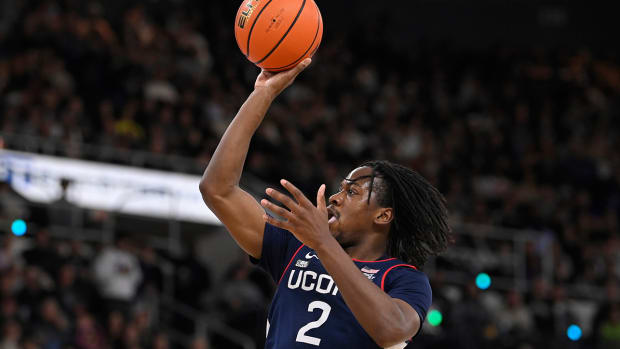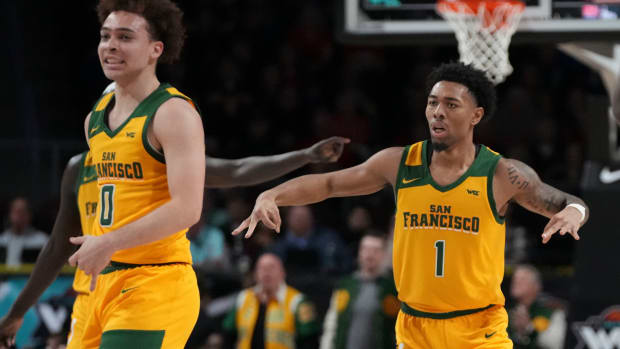Study: NCAA ‘Robs Predominantly Black Athletes’ of Opportunity to Build Generational Wealth
The NCAA’s steadfast refusal to pay players is costing its largely Black labor force an opportunity to create substantial generational wealth, according to a new study conducted by the National College Players Association, an advocacy group for student-athletes.
The study, directed by NCPA executive director Ramogi Huma and Drexel University professor Ellen J. Staurowsky, concludes that from 2017–2020 alone, $10 billion has been funneled to coaches and administrators when that money could be shared by football and men’s basketball players.
The study uses the NBA and NFL’s collective bargaining agreements as a reference point for what revenue sharing could look like for college athletes in big-money sports. If college football players received 47% of revenue disclosed by the NCAA, a four-year player in a Power 5 conference would make more than $1 million during his time in college. In men’s basketball, players in the ACC, Big 12, Big Ten, and SEC could stand to make more than $2 million if they shared 50% of revenue. If athletes were able to invest even a $100,000 portion of that money, they could accrue over $1 million in retirement savings, the study says.
The analysis was conducted by Huma and Staurowksy—two staunch advocates for the rights of college athletes—in the wake of NCAA president Mark Emmert’s comments denouncing racial inequality following protests over the killing of George Floyd. Huma, whose NCPA co-sponsored the California bill allowing student athletes to profit off their name, image, and likeness (which has since resulted in a call for national legislation), said in a press release that the NCAA’s desire to still hold a football season amid the COVID-19 pandemic is the latest example of the institution’s “racial exploitation.”
According to the study, among Division I schools 79% of university athletic directors are white, in addition to 82% of football head coaches and 69% of men’s basketball head coaches. Meanwhile, 49% of football players are Black, as well as 56% of men’s basketball athletes. While students are not compensated, the average salaries of Power 5 coaches, conference commissioners and even athletic directors are all more than $1 million.
“College-athletes—especially black athletes, who are disproportionately represented in revenue-generating sports—are a massive source of revenue for colleges and media companies, yet they aren’t allowed to share in the enormous value they create," said Sen. Cory Booker (D-NJ). "And these injustices perpetuate long after students’ playing days are over in the form of student debt and potentially a lifetime of dealing with injuries. The health, safety, and education of college athletes needs to a priority in any system that continues to profit off their labor and talent. As this report quantifies in detail, this system is deeply unfair and unjust—it needs to change."
The study's release coincided not just with the NCAA's announcement that it would allow athletes across all sports to use their jerseys for social justice messages this season, but also after a contentious hearing in front of the Senate Judiciary Committee earlier this month in which lawmakers pushed Emmert to reform his organization’s policies. A universal name, image, and likeness bill was one of a few topics broached, while senators Booker and Richard Blumenthal (D-Conn.) also criticized Emmert for the NCAA’s lack of long-term healthcare.
Potential NIL legislation is already creating tension between congress and the NCAA. Power 5 conferences drafted a version of NIL policy—obtained by SI’s Ross Dellenger—that include numerous restrictions on athletes, such as making them wait to sign endorsements until completing a semester of school, or giving universities the ability to prohibit certain agreements. The restrictions were criticized by both Blumenthal and Booker, as well as Huma.
“The [NCAA] proposal is so restrictive that it would prevent college athletes from receiving any endorsement deals from any organization that doesn’t have an existing or prospective contract with their institution or with any of their competitors,” Booker said during the July 22 hearing.
After California passed its NIL legislation, several states followed suit, in part to make sure their schools were not at a disadvantage in recruiting athletes. The varied laws around the country spurred the NCAA to ask the federal government for help.
Lawmakers from both parties have panned the NCAA’s and Power 5’s initial NIL proposals. During the July hearing, Sen. Lindsay Graham (R-S.C.), head of the judiciary committee, set a Sept. 15 deadline for a Congressional group to create a rights package for college athletes. Both the NCAA’s and many states‘ NIL regulations are expected to be in place for next season, though federal legislation could supersede both.
